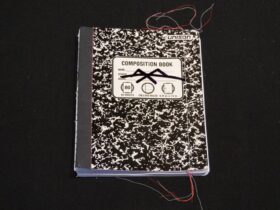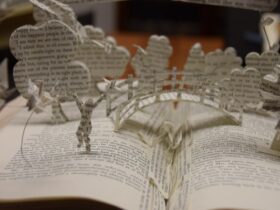The Special Collections featured book for September is The Genius: A Memoir of Max Reinhardt. Written by his son, Gottfried Reinhardt, this is an intimate look into the life of Max Reinhardt from his birth near Vienna in 1873 until his death in New York City in 1943. Gottfried tells of the power and mastery of his father on a stage as well as the charm of Reinhardt and the love he generated in those whose lives he touched. This is poignantly expressed in a simple tribute from longtime admirer, Albert Einstein: “A man like your father, the world will not see again soon.”
Max Reinhardt was theater and film director and theatrical producer. With his innovative stage productions, powerful staging techniques, and harmonization of stage design, language, music and choreography, he is regarded worldwide as one of the most prominent directors of German-language theater in the early 20th century. His career coincided with a major shift in the evolution of modern theater: the ascendancy of the director as the key figure in theatrical production. Reinhardt’s reputation in international theater history is secured by the leading role he played in this transformation, as well as by his innovative use of new theater technology and endless experimentation with theater spaces and locales, which together redefined traditional relationships between actor and audience toward a new participatory theater.
Reinhardt was a co-founder of the Schall und Rauch Kabarett stage [later known as the Kleines Theater] in Berlin in 1901 and later managed the Neues Theater and the Deutsches Theater, also both in Berlin. By 1930, he ran 11 stages in Berlin and, in addition, managed the Theater in der Josefstadt in Vienna from 1924 to 1933. His theaters embraced a number of genres including ballet, pantomime, opera and the morality play. Reinhardt had multitudes of successful productions both in Europe and in the United States including Vollmoller’s Das Mirakel [The Miracle], Gorki’s The Lower Depths, and Shakespeare’s A Midsummer Nights Dream. Reinhardt also directed a film version in 1935 of a Midsummer Nights Dream with a cast that included James Cagney, Mickey Rooney, and Olivia de Havilland.
After the Anschluss of Austria to Nazi-governed Germany in 1938, he emigrated first to Britain, then to the United States. Reinhardt opened the Reinhardt School of the Theatre in Hollywood, on Sunset Boulevard. In 1940 he became a naturalized citizen of the United States.
Binghamton University holds the Max Reinhardt Archives & Library which is located in Special Collections on the second floor of the Bartle Library. The collection contains over 240,000 papers, personal letters, documents, and original promptbooks of Reinhardt productions; over 14,000 photographs and negatives, including a number of costume and set designs; films of some of Reinhardt’s productions; and a portion of Reinhardt’s personal library.
To read The Genius: A Memoir of Max Reinhardt or learn more about the man himself, please visit Special Collections. We are open Monday – Friday, 10:00 a.m. – 4:00 p.m.






